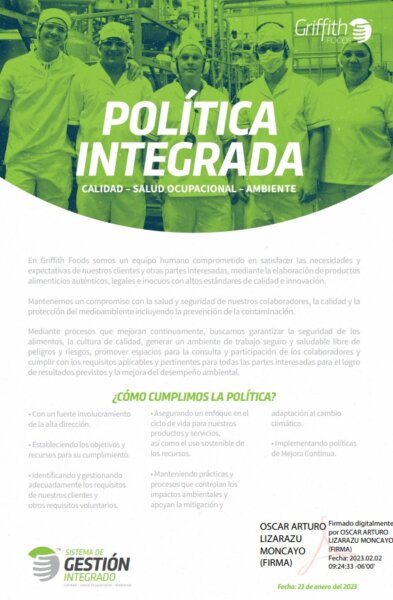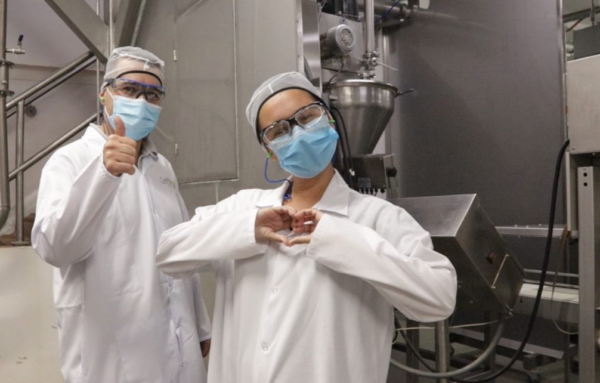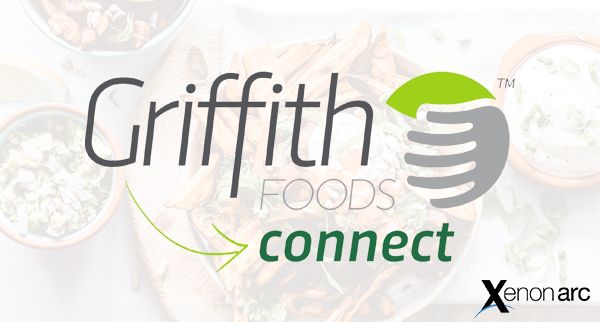
NEW YORK – Griffith Foods is proud to moderate and participate in a panel discussion focused on embedding sustainability into global supply chains during the SDG Business Forum at the United Nations (UN) Headquarters in New York City on July 17.
The 40 minute panel will begin at 3:35 Eastern time and can be live-streamed here: http://webtv.un.org/. Griffith Foods’ panel discussion will be available in the links below the main video stream.
The SDG Business Forum is a one-day event supporting business action and partnerships to achieve the UN Sustainable Development Goals (SDGs), a set of interconnected goals focused on action to end poverty, creating positive change for both people and the planet by 2030. This is the third SDG Business Forum, which occurs during the UN High-level Political Forum.
The panel, entitled “Embedding sustainability in global supply chains – the Griffith Foods experience,” will discuss Griffith Sustainably Sourced (GSS), the company’s strategic sourcing program targeting multi-stakeholder integration of the spices and herbs supply chain. Participants will provide their perspective and first-hand accounts on the importance of partnerships to drive positive impacts socially, environmentally, and economically.
Sustainable sourcing, including the GSS program, is a focus area for Griffith Foods within the company’s triple-bottom-line sustainability platform of people, planet, and performance.
Brian Griffith, executive chairman of Griffith Foods, will moderate the panel comprised of partners in the GSS program, including Martine Willems, manager of sustainable agriculture relations at Rainforest Alliance; Xhelal Danaj, a farmer from Albania of Rainforest Alliance Certified™ sage; Ormela Likaj, from Relikaj, Ltd., an herb processor in Albania; and Giridhar Rao, global director of Griffith Sustainably Sourced (GSS).
Griffith Foods, whose purpose is “We Blend Care and Creativity to Nourish the World,” is aligning the company’s existing sustainability platform to relevant sustainable development goals, such as Zero Hunger, Clean Water and Sanitation, Reduced Inequalities, and Responsible Consumption and Production. There are 17 SDG goals, which were created by the United Nations Development Programme in January 2016.



